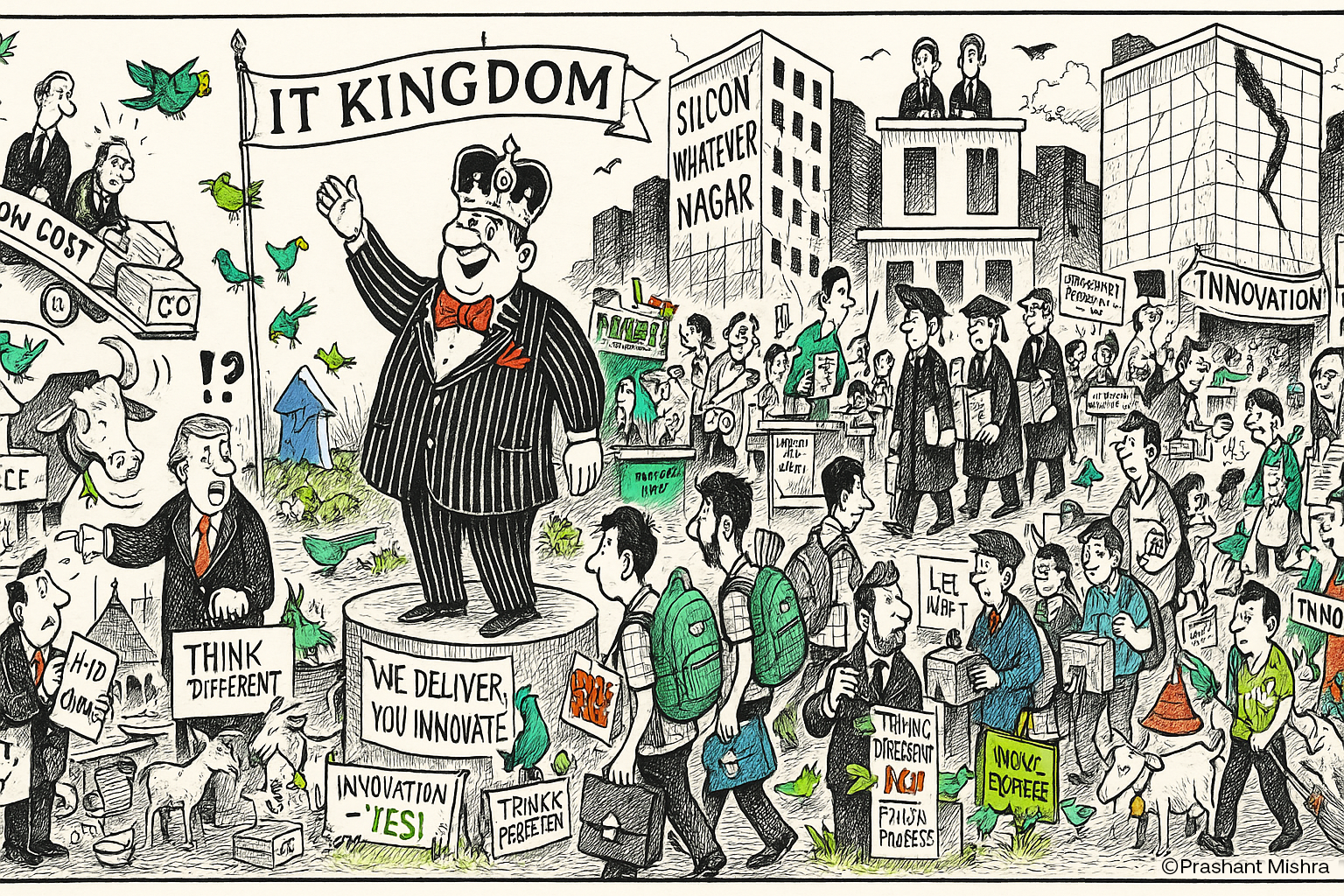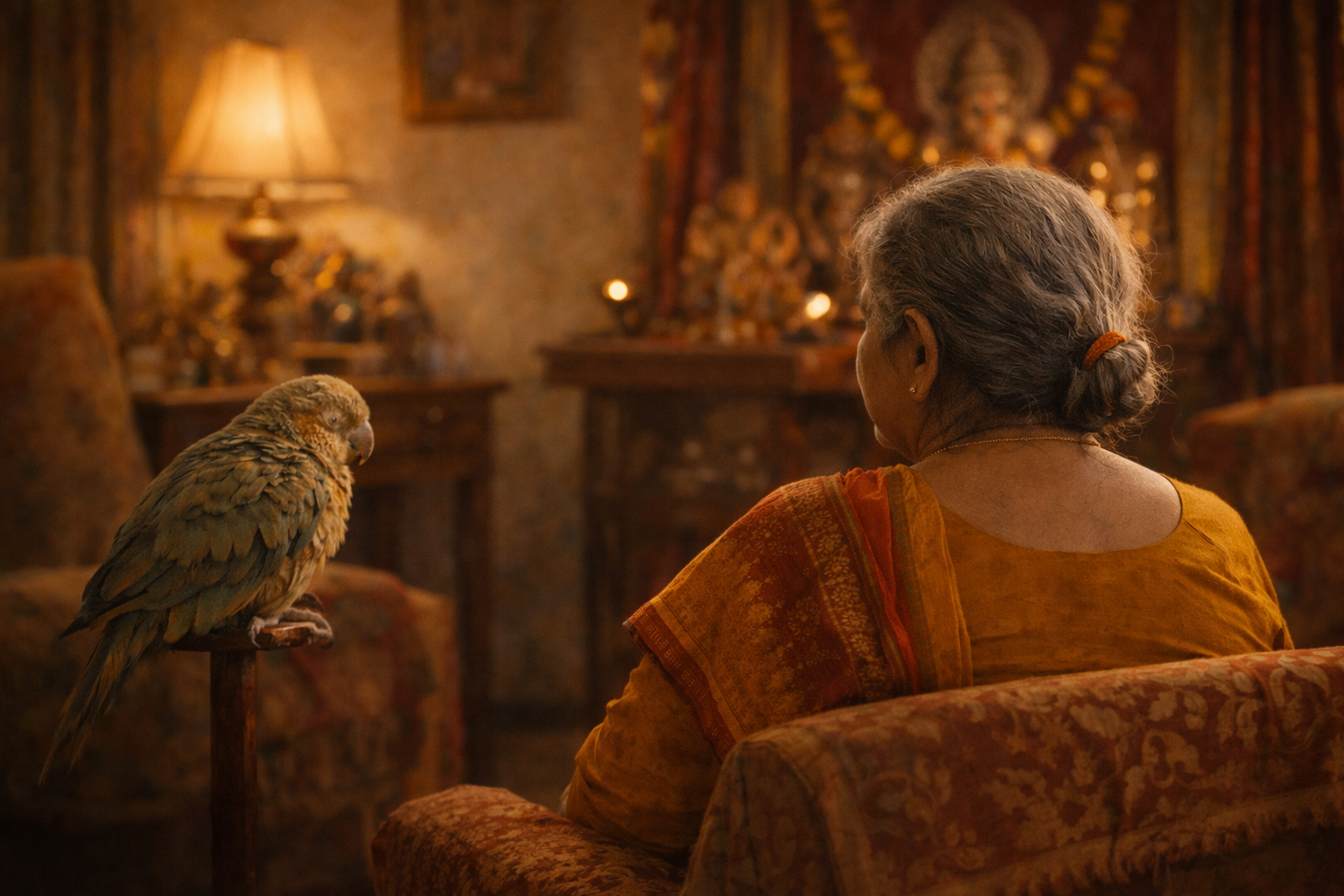
Purpose is evident in hindsight
There is something very deeply evocative about putting pen to paper. A deliberate act that almost feels like a sacred one in this age of frenzied taps on the keyboards or pressing the microphone button and rambling off one’s thoughts.
I am now 50 years old; I am aging quite gracefully. And I have begun not to give any fuck anymore. But yes, with aging has come a fair share of revelations. Primary among them is the realization that upheavals—those earth-shattering, dramatic events—hardly ever hold the meaning that we ascribed to them once upon a time. In reality, they serve only as checkpoints in our grand journey. And this journey itself is rarely ever towards that grand utopia that we imagine. Instead, it is all about arriving, unscathed yet weathered, at a place of quiet acceptance.
I find myself reflecting on this simple truth: life, in all its complexity, is a series of missed turns, found paths, and the bittersweet dance between the two. Suddenly the song Runaway Train from the group Soul Asylum sprung into my mind, but I digress.
In the search for meaning, we often get confused between rationalization and reconciliation. We try to reconcile with life, which is more about accommodating actions and situations. But as one ages, one realizes that reconciliation may not be the right approach. Perhaps rationalization is better because it allows one to justify or explain an action or belief by creating seemingly logical reasons.
Let me explain.
One cannot compute all the consequences of one’s action. This means that all of one’s actions are based on some kind of intuition and the result of an analysis of a limited set of data. What we generally do is rationalize our experience by saying that yes, this happened for the good or that happened because it was God’s will. Like the saying goes, purpose is always evident in hindsight.
But the reason it is so—why purpose is only evident in hindsight—is because we need coping mechanisms. It’s nature’s way to keep us sane and alive. Because if we do not rationalize, we will go crazy.
Think about it: how do you know that the turn you missed was a bad one and the one that you did take was the right one? You don’t have a time machine. Neither do you have the data. The only thing you have is the belief that it was all for the good. I don’t believe in that ‘belief.’ How can life exist in a world that has no objective cause of suffering? In reality, our limited intellect is unable to truly comprehend the reality that exists around it, thus knee-jerking itself into this grandiose expedition of finding meaning in it all and believing that everything happens for the best. What if there is no meaning behind this long, languorous life of ours? Maybe we aren’t looking for fulfillment. Maybe what we are actually looking for is that sweet longing that provides the right amount of pain to carry on because that longing begets hope. And ‘hope’ keeps us breathing. Sometimes when you long for things so badly, so desperately, that eventually, when you do possess them, the very act of achievement becomes the ‘grief’.
There are quite a few turns that I think I missed. That does not imply that I am unhappy with where I am. On the contrary, I am quite pleased with myself and with what I've achieved. But as I grow older, I realize that achievements are direct functions of time, skill, and effort. That's the equation. Therefore, I believe that achieving worldly objectives is a matter of mathematical certainty.
It's the stuff that gets lost in the way—the intangibles, the visceral—that bothers me. And they bother me because when we are young, the intangibles (in our minds) were very tangible. They were real. It's only as we progress on the path of the pursuit of objectives that those real things become unreal. When I say intangible and visceral, I mean the things that we dream of or the things that we aspire to. When we are young and not yet "hardened" by life, we deeply connect to these ideas because we understand their validity. But as we grow up, we reason them out.
Have you noticed that when we are young, our houses and our playgrounds seem so big, but when we visit the same places later on in life, they look so small? So, what changes? Our vision stays constant, but I believe the structure undergoes changes. As we grow up, our experiences really hit hard against reality. And that alters our thinking. We must confront the issue or circumstance we find ourselves in, with solutions intrinsically limited. Each act is Sophie’s choice—each choice leads to grief. At first, we do not understand, but later we do, and we accept it. When that metamorphosis begins to happen, we discard things that we cannot attain as “intangibles” or "visceral." Because we have to justify our decisions. We compromise because compromise is life. Therefore, we self-adjust to experience happiness through the "notion" of happiness rather than the actual experience of happiness itself. Because happiness is like Schrödinger’s cat; if you acknowledge it, then it is gone.
Perhaps the key lies in rationalizing.
Lately, as I grow older and my solitude becomes my constant companion, certain memories of the past resurface. Most of the time, they are unbidden. These are memories of connections I have forged, mistakes that I have made, and lessons that I have learned. Among them is a profound gratitude for those who, knowingly or unknowingly, shaped the course of our lives.
In the Fall Semester of my Master of Science program in 2002, for Professor Ken Rossi’s class, the subject of Artificial Neural Networks (ANNs) was suggested to me. I got an ‘A’ grade and, if memory serves me right, the highest marks in the class that semester. I recall that moment vividly. That nudge became a cornerstone of my career, culminating decades later in a book on Artificial Intelligence. ANNs are the primary components of AI. The circle is complete. The purpose has been met.
This is a reminder that life, despite its unpredictability, has a way of closing circles, revealing purpose only in hindsight.
As I navigate this chapter of my life, I find solace in the idea that some connections, though dormant, are timeless. Whether we ever revisit those moments or let them rest in the folds of memory, they remain an integral part of our story.
To those who have walked this path with me, in spirit or in silence, I offer my gratitude. And to those still searching for meaning, I leave you with this: Keep seeking and holding on to the visceral because perhaps the questions matter more than the answers. For it is in the seeking, not the finding, that we truly live.


